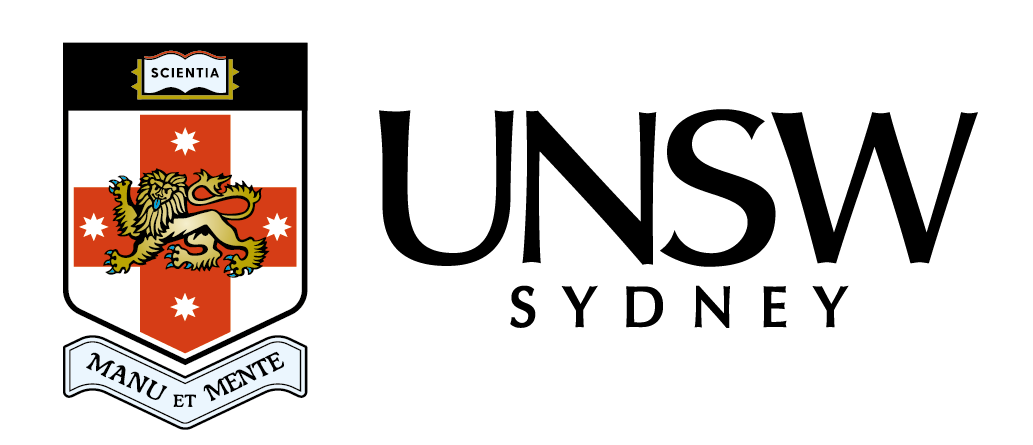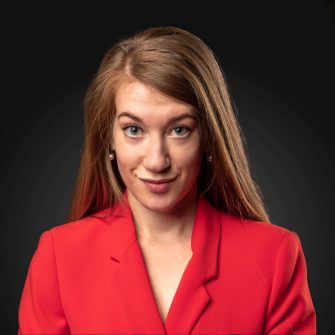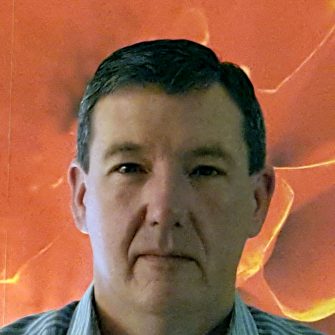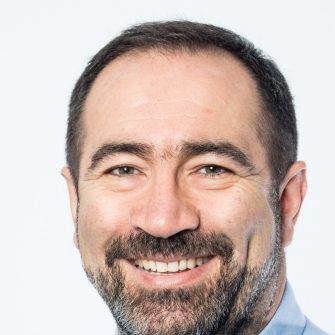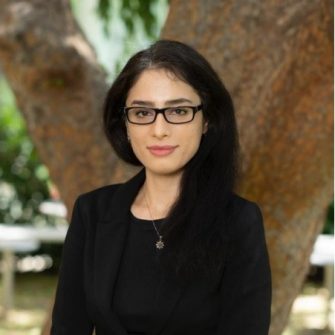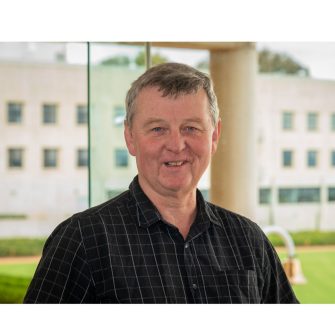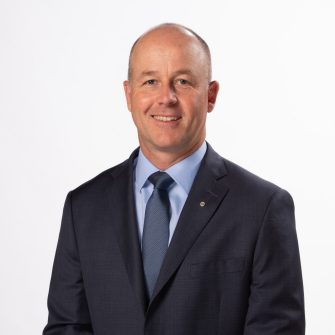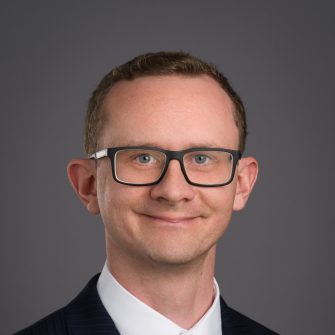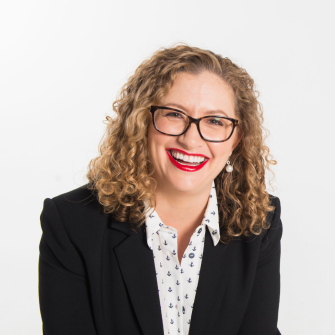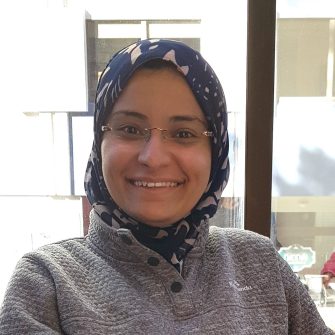

Date
17th November

Duration
1 Day

Venue
Hybrid Event
Overview
The last few years have prompted a rapid change in technology, information and capabilities as organisations seek to accelerate their digital transformation efforts to adapt to challenging socio-economic conditions and remain competitive. Digital Engineering (DE) is reshaping the landscape of how capabilities, assets and projects are designed and managed across various industries, including defence, aerospace, cybersecurity, infrastructure, mining, construction, telecommunication, and healthcare delivery. These industries are changing, and the rapid pace of the digital world has necessitated a growing need for awareness and a fundamental shift in mindset.
The Defence Strategic Review's (2023) focus on transitioning to a National Defence approach (whole of government including Industry and Academia) in designing, delivering and sustaining a 'focused force' of complex systems, achieving accelerated preparedness, and delivery under AUKUS Pillar II Advanced Capabilities, requires the adoption of advanced engineering practices to achieve greater performance and affordability to meet current and future national security challenges. DE is a key enabler to achieving these outcomes while also presenting a critical pathway towards shaping the culture and workforce to innovate and work more efficiently nationally and with allied partners.
About the Summit
The Capability Systems Centre runs a one-day Inaugural Australian Digital Engineering Summit 2023. The Summit will bring together industry, defence and national security agencies, academia, and government leaders in the DE space to establish collaborations, discover the latest research, share strategic insight to further the DE implementations in Australia. The hybrid event will be held in person at UNSW Canberra at ADFA and virtually on November 17, 2023.
Inaugural Australian Digital Engineering 2023 Summit aims to:
- Increase awareness about the critical needs for DE in Australia as a key enabler for future capabilities.
- Spark innovation by exploring current and future efforts that integrate DE practices, data, operational systems, and emerging technologies to accelerate the delivery of new defence and industry capabilities.
- Develop a shared understanding of the obstacles to implementing DE pathways and practices and what needs to be addressed to remove or resolve them.
We believe that this free Summit is an opportunity to create an inclusive event in which everyone worldwide can contribute.
Do not miss out on this wonderful opportunity to meet and network with the policymakers, authorities, industry leaders and researchers at the forefront of digital engineering and industry digital transformations!
We look forward to welcoming you to the Inaugural Australian Digital Engineering 2023 Summit in November.
Venue
This hybrid event will be held in person at UNSW Canberra at ADFA and virtually.
Summit Highlights
Why You Should Attend This Summit
The Summit will provide a forum for members of the defence, industry, academia, and other relevant stakeholders to discuss their roles in driving positive transformation, improving national and international initiatives, disseminating vital capability requirements to industry, and exploring how various sectors support operations, drive innovation, overcome challenges, and deliver tangible socio-economic benefits.
Participants representing defence and other industries can benefit from attending the Summit in several ways, including:
- Access to industry insights: Summit's attendees will have the unique opportunity to gain insights from innovators, engineers, and key decision-makers on strategies to drive digital transformation throughout the industries and foster a digitally enabled workforce.
- Access to the latest research and trends: Attending the Summit will provide industry participants with access to the latest research and trends in the field. This can help inform decisions and enable better life cycle management and sustainment.
- Networking opportunities: The Summit will provide industry participants with the opportunity to network with leading researchers and experts in the field. This can help build relationships with potential partners, customers, or collaborators.
- Exposure to new processes and practices: The Summit will explore opportunities to integrate systems engineering practices, models and simulations, technological innovations, and data analytics into the integrated collaborative processes to inform decision-making, improve communication, and efficiently use data and models to satisfy the stakeholders' requirements.
Participants representing academia can benefit from attending the Summit in several ways, including:
- Access to industry insights: Attending the Summit will provide academic participants with insights into the challenges faced by industry professionals, which can inform research and teaching.
- Opportunities for collaboration: The Summit will provide academic participants with opportunities to collaborate with industry experts, which can lead to joint research projects or industry partnerships.
- Exposure to new research: The Summit will showcase new research in the field, which can help inform future research projects and keep academics up to date with the latest advancements.
- Education opportunities: The Summit will provide academics with innovative ideas and materials to incorporate into their teaching, which can enhance the quality of their instruction and improve the educational experience for students.
Join Us To:
- Stay up-to-date with the latest developments in the field of DE and enhance your knowledge and skills.
- Obtain valuable insight from senior-level speakers across regions and industries on some of the complex challenges and opportunities facing the DE community.
- Engage with policymakers, authorities, industry leaders and researchers in a unique high-level discussion and networking forum.
- Explore best practices and real-world examples of how to enhance agility and data-driven decision-making through digital transformation.
- Seize the opportunity to contribute your ideas and knowledge and help foster innovation and collaboration among experts and professionals in the cross-industry DE community.
Who Should Attend
The Summit is an event designed for a wide range of stakeholders, including:
- Directors and managers responsible for the application of state-of-the-art DE practices such as digital twin, digital and technology innovation, digital design, and delivery into major projects and programs;
- Heads of IT and data management;
- Systems engineers;
- Decision-makers, regulators and government officials, including leaders in defence and national security agencies, aerospace, infrastructure, construction, manufacturing, health, telecommunications, mining, and energy;
- Academics working in the field of digital transformation, systems engineering, modelling and simulation, data engineering and analytics, and cybersecurity;
- … and many more!
The Summit is open to all defence, industry and academia members and is considered an educational and training forum.
Topics To Be Covered At The Summit
- Digital engineering and the next industrial revolution
- Harnessing the digital thread of data to provide end-to-end asset lifecycle
- Strategically integrating digital engineering in the maritime domain
- Shaping the next generation workforce to enable maritime digital transformation
- Changing the workforce and organisational culture through digital engineering
- A digital engineering competency framework
- Dealing with the changing nature of national security in a digital age
- Digital engineering in service of Industry 4.0
- Public sector data analytics for effective decision making
- Embracing a digital approach to nuclear-powered submarines engineering and delivery
- Systems transformation through a digital perspective
Featured Speakers
-
Dr Joseph M. Bradley, PE
Visiting Research Engineer
Applied Research Laboratory for Intelligence and Security, University of Maryland
Dr. Bradley is a Visiting Research Engineer at the Applied Research Laboratory for Intelligence and Security, University of Maryland (ARLIS-UMD) and Chief Scientist at Main Sail, LLC. His current focus is leading edge technology coupled with socio-technical approaches embedded in complex system governance. He has also supervised the development of large-scale digital twins. Prior to joining ARLIS, he has held a variety of consulting, academic and government positions including Deputy Director for Force Maintenance at Commander, Submarine Force, Atlantic Fleet. He is a retired US Navy Captain with broad experience in Maintenance, Repair and Operations. He is a member of the American Society of Naval Engineers, INCOSE and NDIA. His research interests include complex system governance, action research, project management, and decision-making using modelling and simulation.
Dr. Bradley has earned a Ph.D. degree in Systems Engineering/Engineering Management from Old Dominion University, the Degree of Mechanical Engineer and a Master of Science in Mechanical Engineering from Naval Postgraduate School, and a Bachelor of Engineering from The Cooper Union for the Advancement of Engineering and Art.
-
Professor Rodney Stewart
Professor, School of Engineering and Built Environment
Griffith University
Rodney Stewart is a Professor in the School of Engineering and Built Environment based at Griffith University, Gold Coast City, Queensland Australia. Professor Stewart is an expert in engineering, construction and environmental engineering and management research. His current particular area of research focus is on digital utility transformation. Professor Stewart is leading industry collaborative research projects that seek to integrate 'big data' metering and monitoring technologies and associated expert systems into infrastructure, particularly in the water and energy utility sector, in order to better manage these critical resources and better integrate contemporary solutions such as renewable energy and decentralised water supply.
He was named in the Stanford analysis of top 2% of researchers in the world. He has received over USD $7M of external funding, including over 15 years of continuous prestigious significant Australian Research Council (ARC) funding to date. Rodney has supervised to successful completion over thirty PhD graduates to date; many of which have received national or international accolades for their research outputs and all employed after completion.
He has numerous visiting Fellow (funded) invitations including for example, 2012 and 2017 visits to the strong Urban Water Systems Group in Exeter (UK), 2013 visit to UC-Davis Centre for Watershed Sciences (USA), and 2017 visit to Cambridge University.
-
Rear Admiral Stephen Hughes, AM, CSC
Head of Navy Capability
Royal Australian Navy
Rear Admiral Stephen Hughes, AM, CSC, RAN, assumed his current role as Head Navy Capability in December 2022. He is responsible for identifying the needs and requirements of Navy’s future capabilities and for the development and delivery of these capabilities to the Fleet.
Rear Admiral Hughes joined the Royal Australian Navy in 1986. He has served as a warfare officer in Frigate and Destroyer class ships, including exchanges with the Canadian Navy and Commander US Seventh Fleet. He commanded the guided missile frigate HMAS Melbourne. Shore postings have included Director Navy Information Warfare, Director Capability Development in the Air Warfare Destroyer program; Director Joint Amphibious Capability Implementation Team responsible for the introduction into service of the Canberra Class amphibious ships; Director General Littoral accountable for Navy’s strategic sponsorship and oversight of the Amphibious and Afloat Support, Mine Warfare, Hydrographic, and Patrol Boat programs; Commander Surface Force responsible for the force generation of Navy’s major fleet units; and Head Intelligence Capability responsible for the capability development and assurance of Defence’s joint intelligence capabilities.
He was awarded the United States Meritorious Service Medal for duties as the Seventh Fleet Exercise Planning and Schedules Officer in 2002; and awarded the Conspicuous Service Cross in the 2017 Australia Day Honours List for his outstanding devotion to duty in the field of major warship introduction into service.
-
Commodore Anthony Klenthis, CSC
Director General Workforce Design
Vice Chief of the Defence Force Group
Anthony Klenthis joined the Royal Australian Navy in 1987 and graduated from the Royal Australian Naval College later that year, having completed his Bachelor of Science (Honours) studies through UNSW Kensington. The foundation phase of his naval career was focussed on developing technical mastery as a Maritime Warfare Officer. He served in HMAS Canberra (FFG), HMAS Success (AOR) and HMAS Sydney (FFG), and gained experience in minor war vessel operations through involvement in advanced mine warfare systems projects.
As an early adopter of the Total Workforce System, he progressed most of his naval career through different patterns of service, while working in the private sector to deliver World Bank infrastructure projects and large-scale commercial and industrial reform programs. He invested heavily in furthering his professional skillsets in organisational design, change management, strategic human resource management and workforce planning.
After his return to the Defence portfolio and nearly a decade as a senior public servant in the Defence Materiel Organisation, Anthony transitioned to full-time Navy service in 2014 and was promoted to Captain on his appointment as Director Navy Workforce Requirements soon thereafter. There began his work to align Navy’s workforce planning approaches and policies with the One Defence Capability Model and Integrated Investment Program.
Anthony was awarded the Conspicuous Service Cross for his outstanding achievements in military workforce planning and promoted to Commodore in 2019. As Director General Future Navy Workforce, he was empowered to transform the Navy workforce to meet future strategic, capability and technology requirements. He has recently moved on to his next challenge, as the inaugural Director General Workforce Design in the new Military Workforce Design Division, VCDF Group. In this role, he is responsible for workforce modelling and simulation for the ADF, and the deliberate planning and integration of the uniform workforce required for the Maritime, Land, Air, Space and Cyber domains.
-
Sarah Pavillard
CEO & Founder
ADROITA
Sarah Pavillard is the founder and CEO of ADROITA, and an ex-Royal Australian Navy Weapons Engineer. Sarah leads a fast-growing national consultancy delivering specialist maritime, weapons, and integration engineering and other professional services to Defence and Defence Primes, and advisory services to Australian and international firms that want to grow their defence business.
As CEO of ADROITA, Sarah’s core purpose is to Engineer Success for Sovereign Capability and delivers this through partnering with employees, Defence, clients and other businesses. She continues to grow and develop a talented team of engineers, Defence and industry professionals, is investing in the research and development of artificial intelligence enabled decision support technology to deliver in-service maritime programs more bang for buck, and leads a number of industry consortiums.
Sarah was awarded 2021 Consultant of the Year in the Australian Defence Industry Awards, and was a finalist in the Engineer of the Year category of the Women in Defence Awards, with ADROITA being shortlisted for numerous industry awards. Sarah has written two White Papers, and serves as a Director on the Board of the Australian Industry and Defence Network (AIDN) and is a Member of the Executive Committee of the Submarine Institute of Australia (SIA).
-
Dr Nicole Hutchison
Senior Research Engineer, Systems Engineering Research Center (SERC)
Stevens Institute of Technology
Dr Nicole Hutchison is a Principal Investigator (PI) and a senior research engineer at the Systems Engineering Research Center (SERC). Her primary work through the SERC has been in human capital development research. This has included development of competency frameworks for systems engineering (the Helix project), digital engineering, and mission engineering. Currently, Dr Hutchison is the PI for the Simulation Training Environment for Digital Engineering, a project that is developing realistic models to be used in training the DoD acquisition workforce in a way that builds hands-on digital engineering skills.
Before joining the SERC, she spent 5 years working for Analytic Services, Inc., supporting the US Departments of Defense, Homeland Security, Health and Human Services, and Justice. She has helped to plan and conduct exercises in Emergency Management, helped run the Louisiana Family Assistance Center following Hurricanes Katrina and Rita, and served 10 years in emergency medicine. She holds a PhD in systems engineering from Stevens as well as a master’s degree in Biohazardous Threat Agents and Emerging Infectious Disease from Georgetown University. Dr Hutchison is an active member of the International Council on Systems Engineering (INCOSE), currently serving on as the INCOSE Events Portfolio Manager and on the INCOSE Certification Advisory Board. She holds her Certified Systems Engineering Professional (CSEP) credential.
-
Simon Vaux
CEO & Co-Founder
DEOS Digital
Simon is an industry pioneer, who is well-regarded for successfully driving digital transformation throughout the infrastructure sector. As CEO and Co-Founder of DEOS Digital, Simon provides digital engineering advisory services for major infrastructure projects and government agencies throughout ANZ. He is also currently writing national standards, leading sector-wide data management initiatives and driving broad uptake of digital twin and smart infrastructure solutions.
Simon was previously with Transport for NSW for 14 years, and led all aspects of the acclaimed Digital Engineering Framework program, from its initial vision through to industry-wide implementation. This program has been a significant catalyst for change, transforming public sector digital capability and driving a step change in overall industry productivity.
Simon also held various other leadership roles and was responsible for the engineering of major heavy rail projects in and around Sydney. Prior experience includes various client and consulting roles with Transport for London, London Underground and various transport projects around NSW. He is a regular speaker at public events, a mentor to young professionals and a keen promoter of civil and digital engineering.
-
A/Professor Ang Liu
A/Professor of Engineering Design, School of Mechanical and Manufacturing Engineering
UNSW Sydney
A/Prof Liu obtained his M.S. in Product Development Engineering and Ph.D. in Mechanical Engineering from the University of Southern California. He was a Provost’s Postdoctoral Fellow, Assistant Professor, and Manager of the iPodia Program at the University of Southern California (USC) from 2014 to 2016. A/Prof Liu's research focuses on design methodology, design thinking, smart manufacturing, digital twin, and engineering education. He has published two books and over 120 book chapters, journal articles, and conference papers, including a series of publications in leading journals such as CIRP Annals, ASME Transactions, and IEEE Transactions. He has been teaching the subject of engineering design and design thinking to over 6,000 engineering students and design practitioners.
A/Prof Liu is an Associate Member of the International Academy for Production Engineering (CIRP), JSPS Invitational Fellow at The University of Tokyo, Fellow of the PLuS Alliance, and Senior Fellow of the Higher Education Academy (SFHEA). He is Secretary of CIRP STC Design in 2022-2025. He received multiple prestigious awards such as the Park's Best Journal Paper Award in 2019, UNSW Vice-Chancellor’s Award for Outstanding Contributions to Student Learning in 2021, one of the 250 Top Researchers by the Australian's Research Magazine 2021-2022, Citation for Outstanding Contributions to Student Learning of the 2022 Australian Awards for University Teaching (AAUT), 2022 Best Journal Paper Award by Journal of Manufacturing Systems, etc.
-
Charles McHardie, AM
Chief Information and Digital Officer, Technology and Digital Programs Group
Services Australia
As Chief Information and Digital Officer (CIDO) for Services Australia, Charles McHardie leads the largest technology group in the Australian government. Charles oversees the technical and digital infrastructure that delivers government services and support to millions of Australians.
In his role as CIDO, Charles is responsible for driving digital and technology transformation within Services Australia, and delivering whole-of-government transformation programs. He oversees significant investment in programs for Centrelink, Medicare, Child Support and myGov, and has led the delivery of major programs such as Welfare Payment Infrastructure Transformation.
Charles led the delivery of technology and business solutions that positioned the Australian government to be able to respond rapidly to the global pandemic. He brings extensive knowledge of Services Australia’s systems from his previous roles as Deputy CEO of the Transformation Projects Group, Chief Transformation Officer, and as Chief Information Officer and Chief Technology Officer with the agency’s predecessor, the Department of Human Services.
Charles joined the Australian public service in 2015 after a long and distinguished career in the Royal Australian Navy where he held IT, intelligence and operational postings. Charles was deployed three times to the Middle East in Australia’s contribution to Operations Enduring Freedom and Iraqi Freedom as well as operations in East Timor. In 2011 Charles was appointed a Member of the Order of Australia for services to Naval Warfare, and in 2014 was awarded a commendation for distinguished service for his command of naval Combined Task Force 150.
-
Jo Dawson
Executive Director
Engineering and Technical Function
Capability Acquisition & Sustainment Group
Jo began her career in the United Kingdom, focusing on Systems Engineering, gaining practical experience with Defence Primes as an airworthiness engineer. She then worked as a specialist safety critical software and safety consultant on programs such as NATO ACCS and the Queen Elizabeth Class Aircraft Carrier. Jo moved to QinetiQ Boscombe Down undertaking Fast Jet and Rotary Test and Evaluation as well as supporting the prototype Fast Landing Craft Technology demonstrator program.
She has also worked in the education and rail sectors, recently managing Canberra’s Light Rail Network.
Jo is the Job Family Function Lead for Engineers and Technical APS employees across Defence and is responsible for the Engineering and Technical Function policy and practice. She also leads the Quality Management, and Cyber Security Advisory and Assurance teams within CASG.
-
Dr Todd Mansell
First Assistant Director General, Technical
Australian Submarine Agency
Dr Mansell is an experienced senior executive within the Australian Department of Defence where he is responsible for establishing ASA as an authorised submarine engineering organisation, as well as developing and applying the science, technology and innovation base Australia requires to be a safe and effective independent owner/operator of our nuclear-powered submarine capability.
He holds a PhD in Artificial Intelligence from the University of Melbourne and is a graduate of the Harvard Business School, Advanced Management Program (AMP188). With over 30 years experience in submarine research, development, acquisition and operations analysis, Dr Mansell’s contribution to submarines has been recognised with the Minister for Defence, Award for Scientific Achievement.
Prior to his current role, Dr Mansell was posted into The Boeing Company (USA) where he worked alongside the Chief Engineer on engineering realignment, innovation supply chain and R&D transformation.
Dr Mansell has held previous roles across Defence and the public service including leading a national innovation and science taskforce, Acting Chief Defence Scientist, Chief Science Strategy and Program Division, Contestability Division and the National Naval Ship Building Taskforce. He also has experience leading Defence’s Science & Technology programs supporting Air Force, Navy, and the Joint Force Domain.
-
Kerry Lunney
Country Engineering Director & Chief Engineer
Thales Australia
Kerry Lunney is Country Engineering Director and Chief Engineer in Thales Australia. She has extensive experience developing and delivering large system solutions, working in various industries including ICT, Gaming, Financial, Transport, Aerospace and Defence, in Australia, Asia and USA. She also participates in a number of global working groups and research projects, focusing on agility, artificial intelligence and systems, system of systems engineering, and safer complex systems.
Kerry is a Fellow of the International Council on Systems Engineering (INCOSE) and holds the Expert Systems Engineering Professional (ESEP) qualification. She is also a Fellow of Engineers Australia with the status of Engineering Executive and Chartered Professional Engineer.
Kerry has held many volunteer roles in her career including past National President of the Systems Society of Australian (SESA), INCOSE Asia-Oceania Director, INCOSE President-Elect, and INCOSE President. She recently contributed to the authorship of the new text on “Emerging Trends in Systems Engineering Leadership”, and co-authored the best paper related to Engineering Agility for the INCOSE International Symposium IS2023.
Agenda
Time
Agenda
8:30
Registration and Tea/Coffee on Arrival
9:00
Capability Systems Center Director’s Opening Remarks and Welcome to Country
9:05
Welcome to UNSW Canberra and Opening
Professor Emma Sparks
Rector, UNSW Canberra
Engineering Digital Transformation for Continuous Improvement
9:15
Towards a measurement framework for digital engineering
Dr Joseph M. Bradley, PE
Visiting Research Engineer, Applied Research Laboratory for Intelligence and Security, University of Maryland
9:30
Digitising the energy-water utility network to achieve sustainability goals
Prof Rodney Stewart
School of Engineering and Built Environment, Griffith University
9:45
Integrating digital engineering in the maritime domain: A strategic vision
Rear Admiral Stephen Hughes, AM, CSC
Head Navy Capability, Royal Australian Navy
10:00
Interactive facilitated takeaways session
10:30
Morning Tea and Networking
Developing the Workforce for a Digital Future
11:00
The application of workforce modelling and simulation to shape digital transformation strategies in Defence
Commodore Anthony Klenthis, CSC
Director General Workforce Design, Vice Chief of the Defence Force Group
11:15
Human-machine teaming for the future: There’s no digital leadership without thought leadership
Sarah Pavillard
CEO & Founder, ADROITA
11:30
Enabling the digital transformation of the workforce: A digital engineering competency framework
Dr Nicole Hutchison
Senior Research Engineer, Stevens Institute of Technology, Systems Engineering Research Center (SERC)
11:45
Interactive facilitated takeaways session
12:15
Networking Lunch
Unlocking the Value of Data in Engineering
13:15
Harnessing the digital thread of data to provide end-to-end asset lifecycle
Simon Vaux
CEO & Co-Founder, DEOS Digital
13:30
AI-driven design and manufacturing in the digital age
A/Prof Ang Liu
School of Mechanical and Manufacturing Engineering, UNSW Sydney
13:45
The importance of data in delivering simple, helpful, respectful and transparent government services for Australians
Charles McHardie, AM
Chief Information and Digital Officer, Technology and Digital Programmes, Services Australia
14:00
Interactive facilitated takeaways session
14:30
Afternoon Tea and Networking
Connecting the Dots: Integration of Data, Skillsets, and Technology for Advancing Digital Transformation
15:00
Digital Engineering: Considerations for acquisition and sustainment
Jo Dawson
Executive Director, Engineering and Technical Function, Capability Acquisition and Sustainment Group
15:15
A digital approach to nuclear powered submarine engineering
Dr Todd Mansell
First Assistant Director General, Technical, Australian Submarine Agency
15:30
Systems transformation through a digital perspective: Is engineering ready for this future?
Kerry Lunney
Country Engineering Director / Chief Engineer, Thales Australia
15:45
Interactive facilitated takeaways session
16:15
Networking Break
16:30
Wrap-up: The Vision Forward
17:00
End of Summit
Organising Committee
Our Partners
Contact Us
For information or assistance on the Inaugural Australian Digital Engineering Summit 2023, please contact:
Summit Organising Committee
Email: capabilitysystems@adfa.edu.au
For more information about the Capability Systems Centre, please visit:
